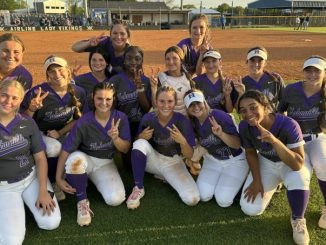
Revenue collected from gaming used to feed and house prisoners
Video poker has swept the nation and the state of Louisiana. In 1992 Louisiana lawmakers authorized the use of video poker machines in restaurants, bars, truck stops, racetracks and off-track betting facilities.
When gaming was introduced to the state in the 90’s, state officials earmarked a portion for education, but what happens to the money collected from video poker in St. Charles Parish?
According to Lori Toups, director of finance for St. Charles Parish, in 2006 $519,060 was collected in revenue from video poker proceeds. The Louisiana gaming control board reports that there are 222 video poker machines in St. Charles Parish at 45 locations.
“The amount of money we receive from video poker comes from the state and then it goes into the parish’s general fund and is used to support all of the general governmental departments, like the feeding and housing of prisoners,” Toups said. “That’s usually the largest group along with supporting the district attorney and the court system. If any money goes to the school board to fund the schools it would go to them directly from gambling proceeds collected at the state level.”
The state’s Minimum Teacher Fund Program was created so that revenue collected from state lottery tickets would go towards funding education.
“Video poker proceeds have three different taxes in place,” Sherry Phillips-Hymel, a spokesperson from the Louisiana state senate’s auditing deparment, said. “For example, restaurants that have video poker machines are taxed differently from truck stops that have video poker machines. Just lottery ticket money goes into the fund that supports our schools; other gaming money goes into the state’s general fund.”
Phillips-Hymel says that the money collected in gaming revenue comes goes to the state and is divided between the parish and the sheriff’s office.
In East Baton Rouge parish, residents took aim at the governing body because they decided to use video poker proceeds to fix and repair damaged roadways.
“Video poker proceeds in this case went to an unreliable source to fund infrastructure,” Phillips-Hymel said. “It’s not a good idea because video poker proceeds fluctuate frequently and that’s why it’s not a good idea to fund education with the proceeds either.”
Phillips-Hymel also says that taxes applied to video poker machines range from 18.5 percent to 29.8 percent. Statute 27:311 tells local governing bodies how to spend that money.
Jim Melohn, comptroller for St. Charles Parish schools, says as far as he knows all the money collected from gambling, including video poker, goes into the state’s general fund and is distributed according to how state legislators see fit.
“The parish and the school district are two separate taxing bodies, so they can’t set aside any proceeds for us that come from video poker,” he said. “Not even through donation.”
Melohn has 26 years of experience working with the school district and says that revenue collected from gaming has impacted money distributed for education.
“The state has put more money into education since gambling proceeds were included in the state’s budget plan to give teacher’s pay raises and support the schools,” he said. “But, I’ve noticed in other states, where gambling proceeds supplement education funds, there’s been a shift in funds, not all of the money is used to add to funding that’s already been included in the budget, for education.
“I’m not sure if that is what’s done in our state.”
After a push from Louisiana Gov. Mike Foster in the 90’s, the Louisiana Legislature agreed to dedicate $109 million in state gambling taxes for education pay raises in 2001.
According to the Louisiana State Police Gaming Division revenue reports, from Jan 1, 2007 thru October 2007, $66,449,537 in revenue has been collected from video poker statewide.




Be the first to comment